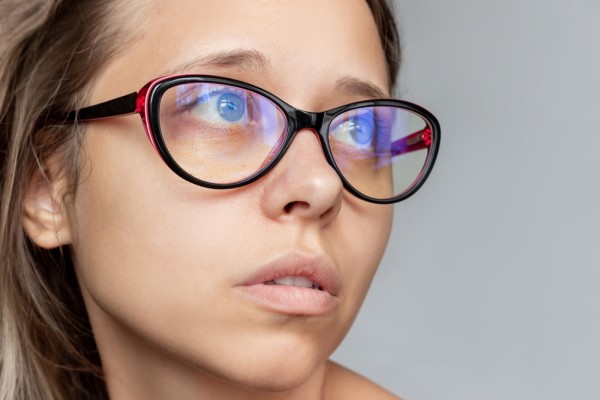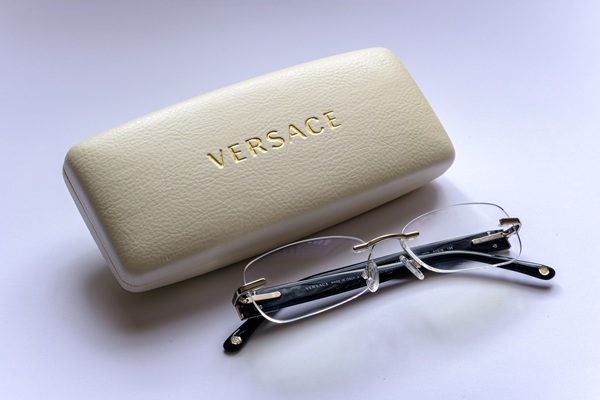How Blue Light Glasses Work

The highest energy form of visible light is blue light. It can often be found in electronic devices. Fortunately, blue light glasses block and protect your eyes from the negative effects of blue light, which is otherwise unavoidable. This article will review everything you need to know about the effects of blue light and how blue light glasses can help prolong your eye health.
How blue light glasses promote eye health
What is blue light?
Blue light is a high-energy visible (HEV) light found in sunlight (seen by the naked eye) and artificial sources, such as phones, tablets, computers, and televisions. It is a form of electromagnetic radiation, like ultraviolet (UV) rays and infrared radiation.
Light is measured in nanometers, and blue light is shorter than other lights standing between 380 and 500 nanometers, making it high energy and dangerous. Blue light is mainly harmful because it offers no health benefits and can cause significant damage to the retina and macula, where most of the cells in the eye are located.
Negative effects of blue light
Blue light can lead to several eye conditions, such as dry eye, eye-straining that lasts for days, blurry vision, early macular degeneration, and an overall decrease in vision quality. In addition, consistent exposure to blue light can cause frequent and prolonged headaches and migraines in some people.
According to a 2016 study from the Molecular Vision Biology and Genetics in Vision Research, blue light also suppresses melatonin production, making it harder for patients to sleep at night. However, they can try to switch off their devices an hour before bedtime can help them get a better night’s sleep. This can also help prevent melatonin suppression caused by blue light exposure.
How do blue light glasses work?
Blue light glasses are a type of eyewear that blocks the blue light emitted by digital devices and UV rays. They are similar to sunglasses in that they have a tinted lens (they may be polarized or non-polarized). However, unlike regular sunglasses, blue light glasses block all wavelengths of visible light except for the ones the patient wants– in this case, blue.
Blue light glasses block the blue light spectrum in two ways. The first way is by using a filter to remove blue light from the patient’s field of vision. The second way is the lenses are tinted with a special coating that blocks blue light.
Benefits of blue light glasses
The benefits of blue light glasses are undeniable. They can help reduce the symptoms of eye strain, such as irritation and burning. This is especially important for people who spend a significant amount of time in front of computer screens or staring at their mobile devices. They can also help promote a patient’s daily performance as well helping them get a restful night’s sleep. In addition, blue light glasses prevent or aid in medical conditions such as macular degeneration, glaucoma, cataracts, and age-related degeneration (ARMD):
- Macular degeneration. A type of age-related eye disease that causes vision loss in older adults diagnosed with it. While it is more common in older adults, it can appear earlier in life if the eyes are unprotected.
- Glaucoma. A disease where the optic nerve becomes damaged. The damage to this nerve can cause vision loss or even blindness.
- Cataracts. An eye condition that can be caused by exposure to too much blue light from sunlight or artificial sources.
- ARMD. An age-related disease that affects central and peripheral vision if not treated promptly.
Additional tips to protect from blue light
Blue light is unavoidable, and while blue light glasses offer a certain level of protection, it is still best to adopt eye-health-friendly habits. Some habits include:
- Turn off the auto-brightness feature on mobile devices; this feature is designed to adjust brightness levels based on ambient light levels
- Increase the contrast on the computer or laptop screens by making black text on a white background as large as possible; this reduces strain on the eyes, making it easier to focus
- Adopt the 20-20-20 rule; when working on a computer all day, patients should look away from their screen after every 20 minutes and focus on an object that is a minimum of 20 feet away from them for at least 20 seconds
- Patients should reduce the amount of LED light exposure
- Do not look directly into any source of light, the sky, or at the sun
Protect your eyes today
If you are feeling the effects of blue light, such as headaches or fatigue, we recommend scheduling an appointment with an optometrist today. Blue light glasses can help your daily performance and help you rest, all without the risk of damaging your eyesight. If the thought of wearing special glasses all day sounds daunting, do not worry. There are many different frames available for you to choose from that can fit your everyday life and personality.
We currently offer blue light glasses in the Dallas area. Visit https://www.texasoptical.net or call our office (214) 771-7333 to schedule an appointment.
Check out what others are saying about our services on Yelp: Read our Yelp reviews.
Recent Posts
The selection of eyewear feels significantly easier when the styles and craftsmanship of Versace eyewear enters the conversation, since bold lines and iconic detailing create an instantly recognizable look. Versace represents the intersection of Italian fashion and Greek mythos, blending confident glamour with symbolism through its signature Medusa logo. The brand is widely associated with…
Many people who work in construction or laboratories wear safety glasses to protect their eyes during the day. However, keeping your eyes safe extends beyond hazards in the workplace. There is a wide variety of household chores and hobbies for which you should wear eye protection. When used consistently, safety glasses help create a safer…
Transitions lenses combine style and convenience to support clear vision without switching between regular glasses and sunglasses. While they were often considered unfashionable in days past, times have certainly changed. Today, transition lenses can be fashionable, chic, and a reflection of your personal style. When designing a pair for you, an optometrist will look at…
Dry eye treatment is important when occasional irritation becomes ongoing discomfort that interferes with daily activities. Many individuals experience dryness, burning, or a gritty feeling in the eyes from time to time. However, when symptoms start to affect reading, screen use, or time outdoors, a structured approach to diagnosis and care helps protect comfort and…


